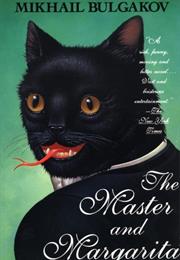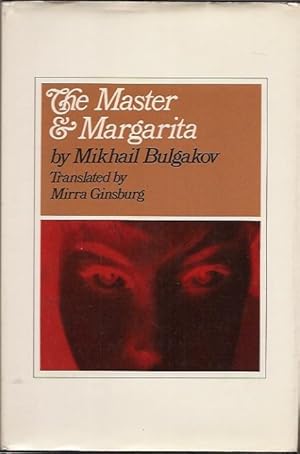
This last construct cannot be interpreted only in the spirit of realistic satire on the Moscow of the Soviet era, it is not so simple. Three constructs of Bulgakov’s novel are the three layers of the narrative – literarybiblical, infernal and the one ‘describing customs, morals and manners’, representing Moscow of the 30-ies of XX century. But it becomes obvious right away that this novel- polyconstruct has a single semantic frame, a value-philosophical ‘super centre’. The novel is mosaic and, ‘running’ forward, it alternates breaking into thematic parts with re-discovery of the unity of the plot.

Today it is clear for how many decades the book was really ahead of its time.

The novel by Mikhail Bulgakov ‘The Master and Margarita’ is unusual for the time of its creation: science fiction in the novel is connected with realistic fates, a myth with historical accuracy, theosophy with demonic, romantics with clowning.

However, does this mean that the novel falls out of traditions of Russian philosophical thought? MIKHAIL BULGAKOV ‘THE MASTER AND MARGARITA’ MYTHOLOGICAL WORLDS OF THE NOVEL BY MIKHAIL BULGAKOV ‘THE MASTER AND MARGARITA’ Kreps, it is called innovative for Russian literature, it is not easily amenable to the studies of literary criticism, which approaches it with the old standard system of measurements. So, in American literature, particularly the works of M. However, it is considered that the novel by Mikhail Bulgakov ‘The Master and Margarita’ essentially falls out of the Russian literary retrospectives. This phenomenon is rightly associated with the social situation in Russia of the ‘Golden’ and ‘Silver’ ages of the Russian Literature of XIX-XX centuries, as well as with the traditions of figurative art forms of domestic philosophizing. It is a well-known opinion, which is considered quite rightful, that stories of Russian literature and Russian philosophy coincide substantially.

Keywords: literary innovations, literary tradition, Soviet myth, philosophical symbolism, literary ‘neosymbolism’. Based on the analysis of mythological storylines, the content of the philosophical worldview of Mikhail Bulgakov is constructed. The article identifies three semantic constructs of the novel, reveals their basic content, their mutual influence. The article criticizes the tradition of literary studies, where the philosophical context of the novel ‘The Master and Margarita’ is interpreted exclusively in the context of Russian philosophical tradition. The article analyzes the mythological systems, that had a significant impact on the outlook of Mikhail Bulgakov as the author of the great novel ‘The Master and Margarita’, the iconic literary work in Russia of XX-of XXI centuries.


 0 kommentar(er)
0 kommentar(er)
